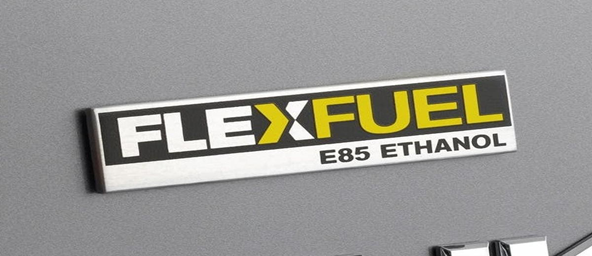India’s first ‘flex fuel’ car
- Posted By
10Pointer
- Categories
Science & Technology
- Published
27th Sep, 2022
-
Context
India’s first ‘flex fuel’ car, a Toyota sedan is set for an unveiling later this month.
- India will join the club of countries – Germany, France, and Brazil – which are already using flex-fuel engines for their cars.

What is a Flex Fuel Vehicle?
- A flex fuel, or flexible-fuel vehicle (FFV) has an internal combustion engine (ICE), but unlike a regular petrol or diesel vehicle, this can run on more than one type of fuel, or even a mixture of fuels.
- Flex fuel vehicles (FFV) are capable of running on 100 per cent petrol or 100 per cent bio-ethanol or a combination of both.
- The most common versions use a blend of petrol and ethanol or methanol, but these engines are also equipped to run on 100 per cent petrol or ethanol as well.
- Both fuels are stored in the same common tank.
- Flex-fuel vehicles are distinguished from bi-fuel vehicles, where two fuels are stored in separate tanks and the engine runs on one fuel at a time, for example, compressed natural gas (CNG), liquefied petroleum gas (LPG), or hydrogen.
- The most common commercially available FFV in the world market is the ethanol flexible-fuel vehicle.
Benefits of Flex Fuel
- Made using ethanol blending, this fuel rapidly reduces harmful pollutants such as carbon monoxide, sulphur and carbon and nitrogen oxides.
- India is dependent on imports for80 percent of petrol and diesel. With the introduction of flex fuel, dependence on other countries will end.
- Ethanol production can also increase in our country because we have better production rates of sugarcane and maize. These are the major sources of ethanol production.
- This will also benefit the farmers financially.
- Its cost will also be less because it will cost less to prepare it.
Disadvantages
- Sole use: The use of ethanol can be considered a disadvantage as well because any crops that are made available for fuel production cannot be used for any other use. This could lead to higher prices for products like animal feed that could otherwise be derived from them. Corn, in particular, is a labour-intensive crop to cultivate and is prone to drought, bad weather conditions and disease
- Engine damage: Ethanol can also unfortunately cause corrosion and damage to the engine, mainly because it absorbs dirt easily
- Expense: Ethanol is also not as economical as gasoline; in that it does not provide the same level of fuel efficiency. Suppliers of ethanol may not be as numerous as those who supply gasoline, so flex fuel stations may be fewer and farther between than is presently the case with gasoline stations. In fact, there are currently only a few stations nationwide that supply ethanol.
Significance
- The use of ethanol blending sharply lowers harmful pollutants such as carbon monoxide, sulphur, and carbon and nitrogen oxides.
- It will deleverage the country’s dependence on oil imports for transportation
- Many flex fuel vehicles have improved acceleration performance when operating on higher ethanol blends.
